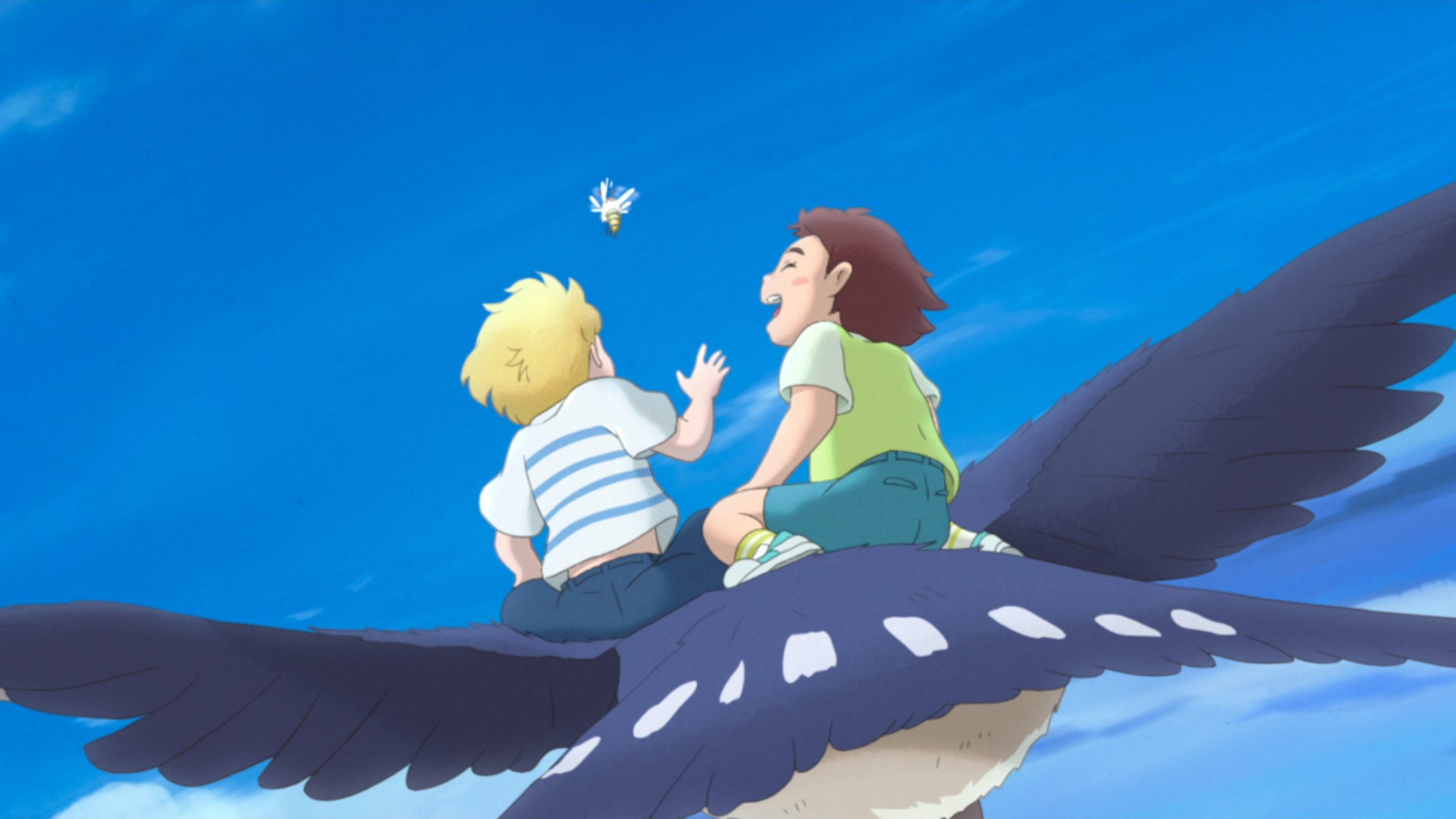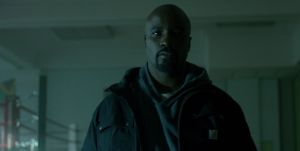
The world of The Imaginary is as lush and enchanting as you’d expect if you’re familiar with the artists behind the onscreen magic. It’s the second feature film from Studio Ponoc, an animation house led by Studio Ghibli alums. And much like their debut feature, Mary and the Witch’s Flower, The Imaginary is a deluge of cinematic delights and confections supported by a touching story that leaves you with a fuller heart than you had going in.
The movie is based on a novel by A.F. Harrold and centers on Rudger (voiced in the English dub by Louie Rudge-Buchanan), the three months, three weeks, and three days-old imaginary friend of Amanda (Evie Kiszel). Together they go on fantastical adventures in dreamed-up worlds filled with dragons, floating castles, hard-working earth giants, and even entire oceans sloshing around inside see-through whales.
As trippy as all this sounds on paper, seeing the hand-drawn imagery in motion is even stranger and more breathtaking. The animators at Ponoc clearly poured love into every frame of the film, to the point where even depictions of simple things like a box of crayons may bring an inexplicable tear to your eye. From the cozy, nostalgic reality-set locations, to the whimsical, watercolor dreamscapes, the multitude of worlds on display undulate with life and personality. If you’re coming into the movie hoping to be blown away by the sheer beauty of the animation, it’s safe to say your expectations will be met if not exceeded.
What makes the story worthy of the art is that its true meaning develops elegantly over time. Initially, we spend time with Amanda and Rudger, watching their friendship in full bloom as they have the best time ever together. But then we slowly learn that Amanda’s mother Lizzie (Hayley Atwell) is a single parent and is going through a rough life transition of some kind, worried sick about getting a new job while caring for Amanda. There are clear undertones of familial desperation and instability at work here, but we don’t know the details quite yet.
Then we’re introduced to the film’s antagonist, Mr. Bunting (Jeremy Swift), an adult who somehow still has an imaginary friend, a ghoulish, tormented girl who doesn’t speak but aids him in seeking out other imaginaries like Rudger to devour. You see, in the world of The Imaginary, only children have secret friends, and when they grow up, their friends are forgotten.
Without spoiling the plot, something happens in Bunting’s pursuit of Rudger that separates him from Amanda. On the brink of fading into the ether, he finds a community of estranged imaginaries like him who have found a new purpose in the aftermath. The story then focuses on Rudger’s ever-evolving existential crisis, and with each new development he becomes more relatable, and more real.
If there’s one major drawback to the film it’s that the expositional moments—and there are many—often detract from the intoxicating effect of the movie’s cinematic elements. There’s a spirit guide character called Zinzan, a talking cat voiced by a stoic Kal Penn, who explains the mechanics of the strange goings-on in the world of imaginaries, and his exchanges with Rudger do deflate the energy of the film a bit.
Zinzan isn’t the only explainer, though. There’s the charismatic leader of the imaginaries, Emily (Sky Katz), who ushers Rudger into his new (after)life as a freelance imaginary of sorts. The rules of how the imaginaries interact with the real world aren’t hard to follow, but the way they’re delivered isn’t exactly captivating. Nevertheless, Emily’s arc does pay off emotionally, and she ultimately becomes one of the more poetic elements of the film.
What’s even more poetic is how the film unveils the circumstances surrounding Rudger’s creation and the impact it has on the final act. The final confrontation with Bunting is both dazzling for the eyes and healthy for the soul. What the story is ultimately about is the preciousness of the time we have with our loved ones and the importance of expressing our love especially in the face of death.
Director Yoshiyuki Momose contributed to some of the most beloved titles in Ghibli’s catalog, and he does right by his legacy with this sweeping ode to the wonder of a child’s imagination. It’s a timeless fable that’s also distinctly modern in some respects, particularly in the way it refuses to condescend to or patronize its audience.
The Imaginary is out on Netflix now.
Learn more about Den of Geek’s review process and why you can trust our recommendations here.
The post The Imaginary Review: Netflix’s New Animated Movie Is Perfect for Studio Ghibli Fans appeared first on Den of Geek.








